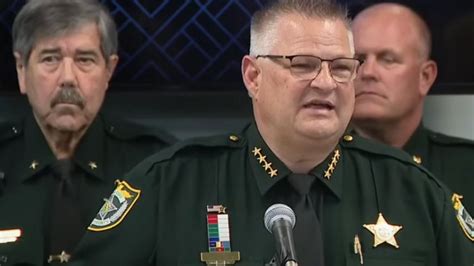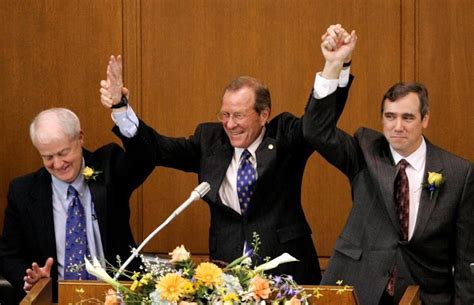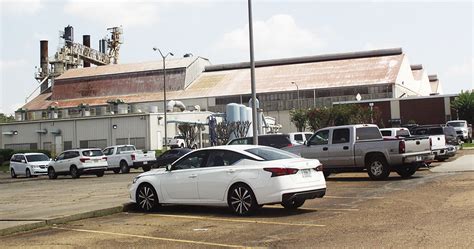
Florida Sheriff Grady Judd issued a stark warning to potential rioters and looters in Polk County, stating, “We will kill you,” should they engage in violent or destructive behavior. The sheriff’s comments, made during a press conference, underscored a zero-tolerance policy towards civil unrest and property damage, raising both support and criticism regarding the appropriateness of such forceful rhetoric.
Polk County Sheriff Grady Judd has issued a stern warning to potential lawbreakers, declaring a zero-tolerance policy towards rioting and looting in the county. At a recent press conference, Judd stated emphatically that individuals engaging in such activities would face deadly force. “If you try to burn someone’s business down, we’re going to lock you up. I’m highly recommending they kill you in the process,” Judd asserted. This controversial statement has ignited a debate about the appropriate use of force and the boundaries of law enforcement’s response to civil unrest.
Sheriff Judd’s tough stance came amid heightened tensions and protests across the nation, some of which have included incidents of violence, looting, and property destruction. Judd emphasized that Polk County would not tolerate such behavior and that law enforcement would take decisive action to protect lives and property. His comments reflect a growing sentiment among some law enforcement officials and community members who believe that a strong deterrent is necessary to prevent chaos and maintain order.
The sheriff’s declaration has been met with mixed reactions. Supporters applaud his commitment to protecting the community and preventing the kind of destruction seen in other cities. They argue that such a clear message sends a strong signal to potential criminals and deters them from engaging in unlawful activities. Critics, however, argue that Judd’s statement is overly aggressive and could lead to unnecessary violence. They contend that law enforcement should prioritize de-escalation and peaceful resolution, and that threatening deadly force is a disproportionate response.
The debate over Sheriff Judd’s comments highlights the complex challenges law enforcement faces in maintaining order while upholding civil rights and ensuring public safety. It also underscores the importance of community trust and the need for open dialogue about the appropriate use of force. As protests and demonstrations continue to occur across the country, the question of how law enforcement should respond remains a critical and contentious issue.
Context and Background
Sheriff Grady Judd has a long history of making strong and often controversial statements. He is known for his outspoken views on law enforcement and his unwavering support for the Second Amendment. Judd’s approach often reflects a “tough on crime” philosophy, which resonates with many residents of Polk County, a largely conservative area in central Florida.
The current environment of heightened tensions and protests stems from a variety of factors, including concerns about police brutality, racial injustice, and economic inequality. These issues have sparked widespread demonstrations and calls for reform, but also, in some cases, have led to incidents of violence and looting. Law enforcement agencies across the country are grappling with how to respond to these events in a way that protects public safety while respecting the rights of peaceful protesters.
Sheriff Judd’s comments were made in the context of these broader national trends. He emphasized that Polk County would not become a place where lawlessness is tolerated. His message was intended to serve as a clear warning to anyone considering engaging in violent or destructive behavior.
Legal and Ethical Considerations
The use of deadly force by law enforcement is governed by a complex set of laws and regulations. Generally, officers are authorized to use deadly force when they reasonably believe that it is necessary to protect themselves or others from imminent death or serious bodily harm. The specific circumstances under which deadly force is justified can vary depending on state law and departmental policies.
Critics of Sheriff Judd’s statement argue that it could be interpreted as an authorization for officers to use deadly force in situations that do not meet the legal threshold. They contend that threatening to kill looters or rioters, regardless of the circumstances, is a violation of their constitutional rights.
Supporters, however, argue that Judd’s statement should be understood as a warning to those who engage in violent or life-threatening behavior. They argue that officers have a right to defend themselves and others from harm, and that the threat of deadly force can be an effective deterrent.
The debate over Sheriff Judd’s comments raises important questions about the ethical responsibilities of law enforcement officials. While officers have a duty to protect public safety, they also have a duty to uphold the law and respect the rights of all citizens. Balancing these competing responsibilities can be a challenging task, particularly in times of heightened tension and social unrest.
Community Impact
Sheriff Judd’s comments have had a significant impact on the community in Polk County. Some residents have expressed support for his tough stance, while others have voiced concerns about the potential for excessive force.
Supporters argue that Judd’s message sends a clear signal that lawlessness will not be tolerated in Polk County. They believe that this will deter potential criminals and protect the community from violence and destruction.
Critics, however, argue that Judd’s comments could create a climate of fear and distrust. They worry that officers might be more likely to use excessive force, particularly against marginalized communities. They also argue that Judd’s statement could discourage people from participating in peaceful protests.
The long-term impact of Sheriff Judd’s comments on the community remains to be seen. It will depend in part on how law enforcement responds to future protests and demonstrations. It will also depend on whether the community can engage in open and honest dialogue about the appropriate use of force and the need for police reform.
Broader Implications
Sheriff Judd’s comments have sparked a national debate about the role of law enforcement in responding to civil unrest. His tough stance reflects a growing sentiment among some officials and community members that a strong deterrent is necessary to prevent violence and maintain order.
However, his comments also raise concerns about the potential for excessive force and the erosion of civil rights. Critics argue that law enforcement should prioritize de-escalation and peaceful resolution, and that threatening deadly force is a disproportionate response.
The debate over Sheriff Judd’s comments highlights the complex challenges law enforcement faces in maintaining order while upholding the law and respecting the rights of all citizens. It also underscores the importance of community trust and the need for open dialogue about the appropriate use of force.
As protests and demonstrations continue to occur across the country, the question of how law enforcement should respond remains a critical and contentious issue. The way in which law enforcement agencies address this issue will have a profound impact on the future of policing and the relationship between law enforcement and the communities they serve.
Detailed Analysis of Key Statements and Actions
Sheriff Judd’s statement, “If you try to burn someone’s business down, we’re going to lock you up. I’m highly recommending they kill you in the process,” is the crux of the controversy. This statement can be broken down into several key components:
-
Direct Threat: The phrase “we will kill you” is a direct and unambiguous threat of deadly force. This language is rarely used by law enforcement officials in public statements, as it can be interpreted as a license to kill without due process.
-
Context of Riot and Looting: The threat is explicitly linked to acts of rioting and looting, specifically “burning someone’s business down.” This context is important because it suggests that the use of deadly force would be justified in response to a violent act that poses a significant threat to life or property.
-
Justification for Deadly Force: The sheriff implies that such actions warrant lethal response. This raises concerns about proportionality. While arson is a serious crime, the blanket statement suggests that any act of arson, regardless of the specific circumstances, would justify the use of deadly force.
The statement’s impact is amplified by Sheriff Judd’s reputation for outspokenness and his history of making controversial remarks. His words carry significant weight within the community and beyond, and they can shape public perceptions of law enforcement’s role and responsibilities.
Comparison to Other Law Enforcement Approaches
The approach taken by Sheriff Judd contrasts sharply with that of other law enforcement agencies that prioritize de-escalation and community policing. Many departments have adopted policies that emphasize the use of less-lethal force, such as pepper spray or tasers, and that encourage officers to build relationships with community members to foster trust and cooperation.
These alternative approaches are based on the belief that violence is not always the answer and that law enforcement can be more effective by working with the community to prevent crime and resolve conflicts peacefully. They also recognize that the use of deadly force can have devastating consequences, both for the individuals involved and for the community as a whole.
Potential Legal Challenges
Sheriff Judd’s statement could potentially be challenged in court on several grounds. Opponents could argue that it violates the constitutional rights of individuals by authorizing the use of excessive force. They could also argue that it is an incitement to violence, encouraging officers to use deadly force in situations where it is not justified.
The legal standard for the use of deadly force is well-established. Officers are generally authorized to use deadly force only when they reasonably believe that it is necessary to protect themselves or others from imminent death or serious bodily harm. The specific circumstances of each case are crucial in determining whether the use of deadly force was justified.
Role of Public Opinion
Public opinion plays a significant role in shaping the debate over Sheriff Judd’s comments. Supporters of his tough stance argue that it is necessary to protect the community from violence and destruction. They believe that law enforcement should have the authority to use whatever force is necessary to maintain order.
Critics, however, argue that Judd’s comments are dangerous and irresponsible. They believe that law enforcement should prioritize de-escalation and peaceful resolution, and that threatening deadly force is a disproportionate response.
The divide in public opinion reflects broader divisions in society about the role of law enforcement and the appropriate use of force. These divisions are likely to persist, and they will continue to shape the debate over how law enforcement should respond to civil unrest.
Examination of Similar Incidents
Examining similar incidents where law enforcement officials have made controversial statements about the use of force can provide valuable insights into the potential consequences. In some cases, such statements have led to increased tensions and mistrust between law enforcement and the community. In others, they have been praised by those who believe that a strong deterrent is necessary to prevent crime.
The outcomes of these incidents often depend on a variety of factors, including the specific circumstances of the statement, the response of community leaders, and the actions of law enforcement in the aftermath. By studying these cases, we can learn valuable lessons about the importance of clear communication, community engagement, and accountability.
Impact on Community Relations
Sheriff Judd’s comments have the potential to significantly impact community relations in Polk County. Depending on how they are interpreted and acted upon, they could either strengthen or undermine trust between law enforcement and the community.
If Judd’s comments are seen as a genuine effort to protect the community from violence and destruction, they could reinforce trust and cooperation. However, if they are seen as a license for excessive force, they could erode trust and create a climate of fear.
Alternative Strategies for Addressing Civil Unrest
There are a number of alternative strategies that law enforcement agencies can use to address civil unrest. These include:
-
De-escalation techniques: Training officers in de-escalation techniques can help them to resolve conflicts peacefully and avoid the use of force.
-
Community policing: Building relationships with community members can foster trust and cooperation, making it easier to prevent crime and resolve conflicts.
-
Negotiation and mediation: Working with community leaders to negotiate and mediate disputes can help to de-escalate tensions and find common ground.
-
Use of less-lethal force: Using less-lethal force, such as pepper spray or tasers, can help to control crowds and prevent violence without causing serious injury.
-
Clear communication: Communicating clearly with protesters and the public about law enforcement’s policies and procedures can help to avoid misunderstandings and prevent escalation.
These strategies are based on the belief that violence is not always the answer and that law enforcement can be more effective by working with the community to prevent crime and resolve conflicts peacefully.
Frequently Asked Questions (FAQ)
-
What exactly did Sheriff Judd say? Sheriff Grady Judd stated, “If you try to burn someone’s business down, we’re going to lock you up. I’m highly recommending they kill you in the process,” during a press conference addressing potential rioting and looting in Polk County.
-
Why did Sheriff Judd make this statement? Sheriff Judd made the statement in response to heightened tensions and protests across the nation, some of which have included incidents of violence, looting, and property destruction. He aimed to send a strong message deterring such behavior in Polk County.
-
Is it legal for law enforcement to threaten to kill people? The legality depends on the context. Law enforcement is authorized to use deadly force when there is a reasonable belief of imminent death or serious bodily harm to themselves or others. Blanket statements can be problematic if interpreted as carte blanche for excessive force.
-
What are the potential consequences of Sheriff Judd’s statement? Potential consequences include increased tension and mistrust between law enforcement and the community, potential legal challenges, and concerns about the erosion of civil rights. Conversely, supporters may view it as a strong deterrent against crime.
-
How does this situation compare to other incidents involving law enforcement and protests? Similar incidents have often resulted in mixed reactions, with some praising strong deterrents and others criticizing potential abuses of power. The outcomes often depend on community responses, the specific context, and the subsequent actions of law enforcement.
-
What is Sheriff Judd’s general approach to law enforcement?
Sheriff Judd is known for his “tough on crime” philosophy and his outspoken views on law enforcement. He is a strong supporter of the Second Amendment and often takes a hardline stance on issues related to public safety.
- What is the legal standard for the use of deadly force by law enforcement officers?
Law enforcement officers are generally authorized to use deadly force only when they reasonably believe that it is necessary to protect themselves or others from imminent death or serious bodily harm. The specific circumstances of each case are crucial in determining whether the use of deadly force was justified.
- What are some alternative strategies that law enforcement agencies can use to address civil unrest?
Some alternative strategies that law enforcement agencies can use to address civil unrest include de-escalation techniques, community policing, negotiation and mediation, the use of less-lethal force, and clear communication.
- How has the community in Polk County reacted to Sheriff Judd’s comments?
The community in Polk County has reacted to Sheriff Judd’s comments with mixed feelings. Some residents have expressed support for his tough stance, while others have voiced concerns about the potential for excessive force.
- What is the long-term impact of Sheriff Judd’s comments likely to be?
The long-term impact of Sheriff Judd’s comments remains to be seen. It will depend in part on how law enforcement responds to future protests and demonstrations. It will also depend on whether the community can engage in open and honest dialogue about the appropriate use of force and the need for police reform.
Conclusion
Sheriff Grady Judd’s declaration in Polk County reflects a broader debate about law enforcement’s role during civil unrest. His strong stance, while supported by some, also raises significant concerns regarding potential excessive force and its impact on community relations. As protests continue across the nation, the approach taken by Sheriff Judd serves as a point of contention, underscoring the need for balanced, ethical, and legally sound strategies that prioritize both public safety and civil rights. The situation in Polk County emphasizes the importance of open communication, community engagement, and accountability in law enforcement to foster trust and ensure justice for all.









